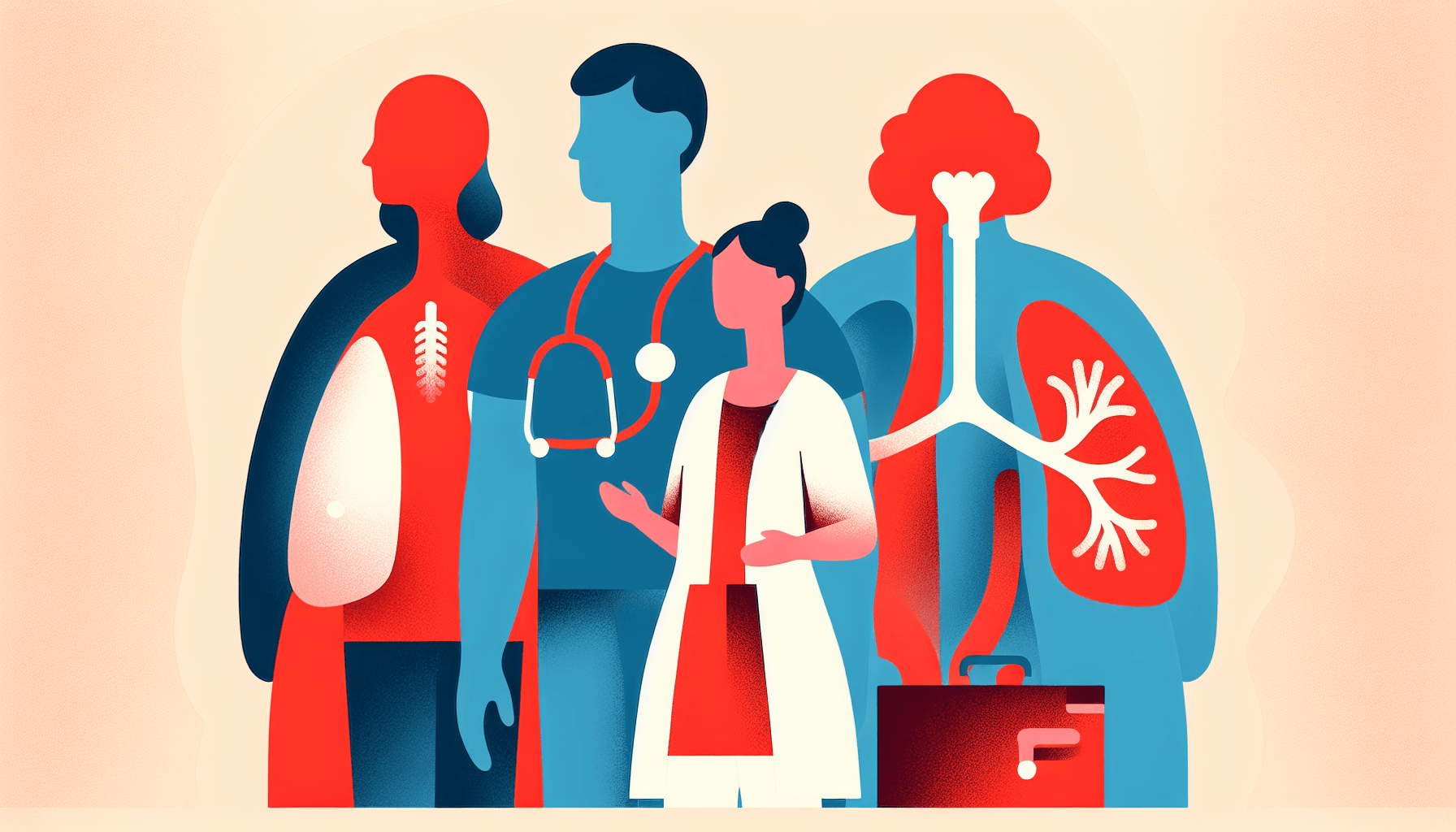Non-small-cell lung cancer (NSCLC) is the most common type of lung cancer. Although it is a serious condition, treatment can often help manage the disease and improve your quality of life. People who smoke or are exposed to secondhand smoke are at a higher risk of developing NSCLC, especially those over 65 years old.
Types of NSCLC
There are four main types of NSCLC tumors:
Adenocarcinoma: Starts in the cells that produce mucus and other substances in the outer parts of the lungs. It is the most common type of lung cancer in both smokers and non-smokers, as well as in people under 45.
Squamous cell (epidermoid) carcinoma: Begins in the cells lining the inner airways of the lungs, accounting for about 25% of lung cancers.
Large cell (undifferentiated) carcinoma: Grows and spreads more quickly, making it more difficult to treat. It accounts for approximately 10% of lung cancers.
Adenosquamous carcinoma: A relatively rare type that develops in the outer part of the lungs and is associated with an increased risk due to smoking.
Symptoms of NSCLC
In the early stages, you may not notice any symptoms, or you might mistake them for other illnesses such as pneumonia or a collapsed lung. As the disease progresses, common symptoms may include:
Persistent or worsening cough
Chest pain that often increases with coughing, laughing, or deep breathing
Hoarseness or voice changes
Wheezing or harsh, raspy breathing sounds
Weight loss and decreased appetite
Coughing up blood or mucus
Shortness of breath
Weakness or fatigue
Recurring lung problems, such as bronchitis or pneumonia
If the cancer spreads to other parts of the body, you may experience additional symptoms like bone pain, headaches, dizziness, balance problems, numbness or weakness in an arm or leg, and yellowing of the skin or eyes.
Diagnosing NSCLC
To diagnose NSCLC, your doctor will start by discussing your medical history and symptoms, followed by a physical exam. Various tests may be performed to confirm the diagnosis and determine the stage of the cancer, including:
Imaging tests (X-rays, MRI, ultrasound, PET scans, CT scans)
Sputum cytology
Fine-needle aspiration biopsy
Bronchoscopy
Endobronchial ultrasound
Endoscopic ultrasound
Thoracoscopy
Mediastinoscopy
Based on the findings, your doctor will assign a stage to the cancer, which helps determine the best treatment plan for you. The stages range from occult (hidden) to stage IV, indicating the extent of cancer spread.
Treatment Options for NSCLC
Treatment for NSCLC aims to target the cancer itself and manage symptoms to improve your quality of life. Your doctor may recommend a combination of treatments depending on the type and stage of your cancer, which may include:
In addition to these treatments, your doctor can help manage pain, shortness of breath, and other symptoms to ensure your comfort throughout the treatment process. Complementary therapies like gentle massage and aromatherapy may also provide relief and relaxation.
Coping with NSCLC
Receiving a cancer diagnosis can be emotionally challenging. It is normal to experience a range of emotions, including fear, anger, and sadness. Seeking support from a support group or counselor who specializes in working with cancer patients can help you navigate these feelings. Additionally, maintaining a healthy diet and practicing relaxation techniques like meditation or listening to music can help you manage stress and improve your overall well-being.
Throughout your treatment, it is essential to communicate openly with your healthcare team about any changes in your physical or emotional state. They can provide guidance and resources to help you cope with the challenges of living with NSCLC.
Prognosis and Support
The prognosis for NSCLC depends on various factors, including the stage at diagnosis and your overall health. If caught early, your cancer may be curable. Even if it is not, treatment can often help you live longer and improve your quality of life. Remember that you have the power to make choices about your care and what is best for you.
For additional support and resources, consider reaching out to organizations like the Lung Cancer Alliance or the American Lung Association. Connecting with others who have faced similar challenges can provide invaluable support and guidance as you navigate your journey with NSCLC.



